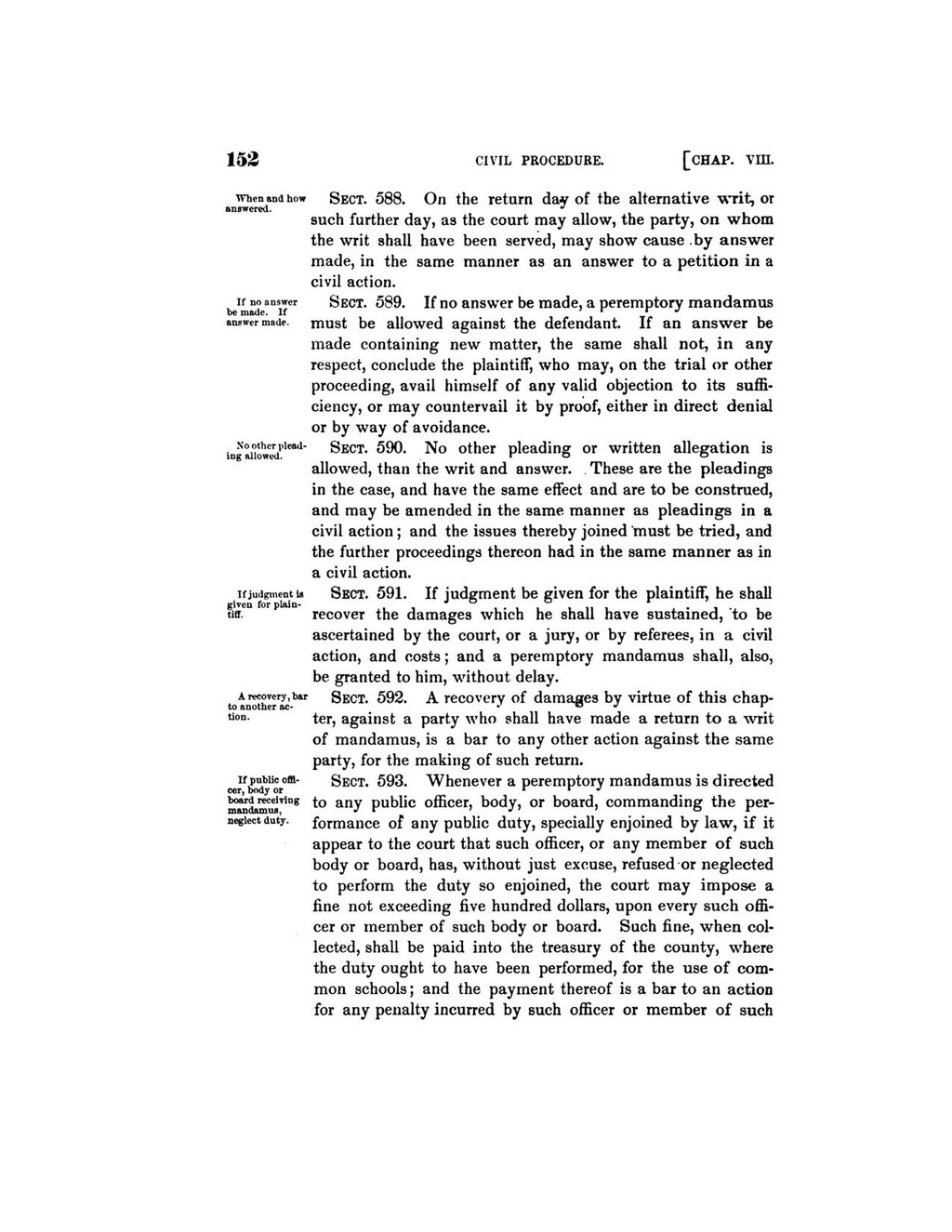When and how answered.Sect. 588. On the return day of the alternative writ, or such further day, as the court may allow, the party, on whom the writ shall have been served, may show cause by answer made, in the same manner as an answer to a petition in a civil action.
If no answer be made. If answer made.Sect. 589. If no answer be made, a peremptory mandamus must be allowed against the defendant. If an answer be made containing new matter, the same shall not, in any respect, conclude the plaintiff, who may, on the trial or other proceeding, avail himself of any valid objection to its sufficiency, or may countervail it by proof, either in direct denial or by way of avoidance.
No other pleading allowed.Sect. 590. No other pleading or written allegation is allowed, than the writ and answer. These are the pleadings in the case, and have the same effect and are to be construed, and may be amended in the same manner as pleadings in a civil action; and the issues thereby joined must be tried, and the further proceedings thereon had in the same manner as in a civil action.
If judgement is given for plaintiff.Sect. 591. If judgment be given for the plaintiff, he shall recover the damages which he shall have sustained, to be ascertained by the court, or a jury, or by referees, in a civil action, and costs; and a peremptory mandamus shall, also, be granted to him, without delay.
A recovery, bar to another action.Sect. 592. A recovery of damages by virtue of this chapter, against a party who shall have made a return to a writ of mandamus, is a bar to any other action against the same party, for the making of such return.
If public officer, body or board receiving mandamus, neglect duty.Sect. 593. Whenever a peremptory mandamus is directed to any public officer, body, or board, commanding the performance of any public duty, specially enjoined by law, if it appear to the court that such officer, or any member of such body or board, has, without just excuse, refused or neglected to perform the duty so enjoined, the court may impose a fine not exceeding five hundred dollars, upon every such officer or member of such body or board. Such fine, when collected, shall be paid into the treasury of the county, where the duty ought to have been performed, for the use of common schools; and the payment thereof is a bar to an action for any penalty incurred by such officer or member of such